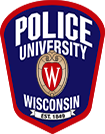New guidelines pass along “amnesty” to individuals who need medical attention.

After a night out, you notice your friend has had too much to drink. Their condition reaches the point where they’ve become unresponsive and they need medical attention. You’re both underage, and you’re concerned about getting yourself and your friend in trouble. But you know your friend needs help — you do the right thing and call for help. You cooperate with first responders.
In the past, campus guidelines (called Responsible Actions Guidelines) would give you — the caller — a sort of “amnesty.” Because you did the right thing and called for help, and you cooperated with first responders, no police or student conduct action would be taken against you. Police citation(s) and/or student conduct disciplinary action would have been taken against your friend who needed medical help.
New campus guidelines, called Medical Amnesty Through Responsible Actions, would pass along that same “amnesty” to your friend who needed help.
Ideally, every student would prioritize the life and wellbeing of their peers, but fear of retribution, peer pressure, and impaired judgment while under the influence of alcohol other drugs present strong barriers to making the call. Research shows that a student is more likely to call for help when they know it will not result in disciplinary actions against their friend.
To prevent exploitation of the program and address underlying behavioral concerns, it is crucial that all students involved in an incident are connected to the Office of Student Conduct and Community Standards (OSCCS) and educational resources. To receive amnesty, the student must fully cooperate with all university personnel and comply with assigned educational programming and interventions. OSCCS would also maintain the right to escalate sanctions if a student is observed to have a pattern of problematic behavior.
This change in practice is the result of a collaboration between the UW-Madison Police Department, the Dean of Students Office, Student Affairs, Housing, the Office of Student Conduct and Community Standards, and Associated Students of Madison (ASM). ASM led the charge to help create the updated responsible guidelines. Read the complete Medical Amnesty Through Responsible Actions here.
